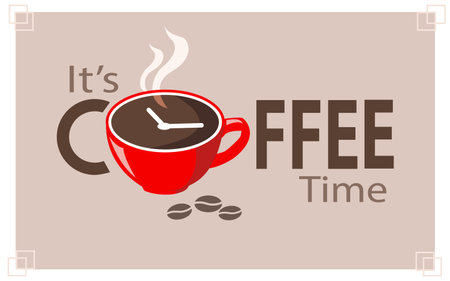Introduction to Coffee Sourcing
Step into any British high street and you’ll find yourself serenaded by the hiss of espresso machines and the aroma of freshly ground beans—proof, if ever it were needed, that Britain is in the midst of a coffee renaissance. But beyond the froth-topped flat whites and meticulously poured cortados lies a world of choices about how those beans found their way from distant farms to our cups. For today’s discerning British coffee drinker, there’s more to consider than just taste; ethical sourcing models like Direct Trade and Fairtrade are quietly shaping the morning rituals of millions. As we swirl our lattes and ponder our next caffeine fix, it’s worth asking: What do these initiatives really mean for farmers, baristas, and everyone in between? This journey through the world of coffee sourcing aims to untangle the jargon and shed light on why these models matter—not just for your palate, but for communities across continents.
2. What is Fairtrade?
Stroll down any British high street and you’re likely to spot the familiar blue and green Fairtrade logo peeking out from bags of coffee beans, tea boxes, or even your favourite chocolate bar. But what exactly does this badge mean for your morning brew? To demystify Fairtrade, let’s take a quick ramble through its history and ethos—one that’s become as much a part of UK café culture as oat milk flat whites.
The Fairtrade movement sprouted in the late 20th century, responding to a global realisation: small-scale farmers were often getting the short end of the stick. The core idea was simple yet radical—ensure better prices, decent working conditions, and fairer terms for farmers and workers in developing countries. In Britain, this ethos found fertile ground. By the late 1990s, initiatives such as the Fairtrade Foundation were cropping up, propelled by partnerships with UK supermarkets like Sainsbury’s and Co-op, who began stocking certified products. Soon enough, that iconic logo became shorthand for ethical shopping on our doorsteps.
What does Fairtrade actually guarantee? Here’s a breakdown:
| Fairtrade Principle | What It Means for Coffee Drinkers |
|---|---|
| Minimum Price | Farmers receive a guaranteed floor price for their beans, protecting them from volatile market dips. |
| Fairtrade Premium | An extra sum paid directly to farming communities for development projects—think clean water schemes or schooling. |
| Community Investment | Your daily cup funds social, economic, and environmental improvements at origin. |
| Transparency & Traceability | You can trace your coffee’s journey—from bean to barista—with confidence in its ethical credentials. |
For many UK consumers, choosing Fairtrade is an everyday act of solidarity—a way to ensure their caffeine fix supports a fairer world. That said, while Fairtrade has become a fixture in British life (with the logo now emblazoned across everything from Costa cups to local bakery shelves), it’s just one approach within a broader conversation about how best to support farming communities worldwide.

3. Direct Trade Explained
If you’ve ever wandered down a side street in Shoreditch or popped into a sunlit nook in Bristol, chances are you’ve sipped on coffee that’s the product of Direct Trade. This model, still relatively fresh on the British scene, is quietly revolutionising how we think about our morning flat white. Unlike more established systems, Direct Trade strips away some of the intermediaries, connecting roasters and cafés directly with coffee farmers. The heart of this approach is radical transparency—think open ledgers, honest conversations, and real relationships built across continents.
For the indie cafés dotted across London and beyond—places where the barista knows your name and might just chat about the latest single origin—the appeal of Direct Trade is clear. Roasters can work hand-in-hand with growers, often visiting farms, collaborating on harvest techniques, and investing in sustainable practices. This isn’t just business; it’s a creative partnership shaped by mutual respect and curiosity.
Direct Trade also puts flavour front and centre, something any discerning British coffee drinker will appreciate. By fostering close relationships with farmers, roasters can access unique lots and varietals that showcase distinctive taste profiles—think notes of wild blackberry or jasmine that would make even the most jaded Londoner pause mid-commute. And because pricing is negotiated face-to-face rather than set by global commodity markets, farmers have more control over their livelihoods and are incentivised to push quality ever higher.
This model feels right at home within Britain’s café renaissance—a landscape where authenticity matters as much as the latte art. For those who crave both provenance and personality in their cup, Direct Trade offers a route to traceability that Fairtrade sometimes struggles to match. Yet, like all things in this city’s ever-changing food culture, it comes with its own set of questions about scale, accessibility, and inclusivity—a conversation every thoughtful coffee drinker should be part of.
4. How Do Fairtrade and Direct Trade Differ?
If you’re nursing a flat white at an East London roastery or picking up a bag of beans in your local Waitrose, chances are you’ve come across both the Fairtrade mark and murmurs about “direct trade.” But what do these labels truly mean for the British coffee drinker? Let’s pull back the curtain on how these two models stack up, especially when viewed through the lens of Britain’s distinctive café culture.
Fairtrade: The Classic Safety Net
Fairtrade is often the first certification Brits encounter—its blue and green label an emblem of ethical assurance. The scheme sets minimum prices and premiums for coffee farmers, aiming to shield them from market volatility and fund community projects. For UK consumers, this translates into peace of mind: you know your morning brew supports fair wages and better working conditions.
Direct Trade: Cutting out the Middleman
Meanwhile, direct trade—favoured by many artisan British roasters like Square Mile or Clifton Coffee—sidesteps traditional channels altogether. Roasters forge relationships directly with growers, often paying above-market prices for exceptional quality. This model promises traceability, transparency, and unique flavour profiles that excite Britain’s growing band of specialty coffee aficionados.
Comparing Models: What Matters to British Consumers?
| Fairtrade | Direct Trade | |
|---|---|---|
| Benefits | Reliable ethical standards; community investment; recognisable certification | Closer farmer-roaster relationships; potential for higher earnings; diverse and traceable flavours |
| Shortcomings | Bureaucratic; not always incentivising top quality; fees may exclude smaller farms | No third-party oversight; standards vary between importers; less accessible to large-scale supermarkets |
| Cultural Fit in UK | Mainstream appeal; aligns with national supermarket culture (e.g., Sainsbury’s, Tesco) | Suits independent cafés and urban specialty scene (think Shoreditch or Bristol) |
The Nuances That Matter in Britain
The British coffee landscape is a patchwork quilt: high-street chains rub shoulders with indie hideaways. For some, the assurance of Fairtrade fits with a broader sense of responsible shopping—especially among families or older generations. Others—often younger or more adventurous drinkers—are drawn to direct trade’s promise of rare micro-lots and personal stories behind every cup. In short, the choice isn’t simply ethical versus exploitative; it’s about which values resonate most with your daily ritual.
5. What This Means for British Coffee Lovers
In the hallowed kingdom of the British coffee ritual, where a flat white is more than just a caffeine fix and a cup of filter is a quiet rebellion against the tyranny of instant, sourcing stories matter as much as tasting notes. For those who care about what’s in their cup—and how it got there—the choice between Direct Trade and Fairtrade isn’t just ethical window dressing; it’s a question of flavour, price, and conscience.
Flavour: Beyond the Supermarket Shelf
Direct Trade often seduces with its promise of exquisite traceability. Think micro-lots from Ethiopian highlands or Peruvian smallholdings, roasted to showcase terroir rather than to hide imperfections. If you’re chasing nuanced florals or chocolate undertones in your daily brew, Direct Trade beans tend to reflect the producer’s skill and the roaster’s artistry. Meanwhile, Fairtrade guarantees may lean towards consistency over complexity—a comfort for many, but sometimes at the cost of vibrancy.
Ethics: More Than Just a Label
British consumers are a discerning lot—keen on authenticity as well as accountability. While Fairtrade offers a reliable minimum standard, Direct Trade invites you into deeper transparency. The catch? Not all “direct” claims are created equal. Some roasters visit farms annually and invest in long-term relationships; others use the label loosely. For those who want their morning brew to make a difference, it pays to dig beyond branding—ask your barista or read up on the roaster’s sourcing philosophy.
Price: What Are You Really Paying For?
Let’s be honest: premium ethics (and taste) come at a price. Direct Trade coffees often command higher prices than standard supermarket fare—sometimes rivaling or even exceeding Fairtrade-certified offerings. But for many aficionados, knowing that extra pound supports sustainable farming and fairer wages makes every sip feel richer. Consider it an investment in both your palate and your principles.
What to Look Out For When Picking Beans or Ordering Your Flat White
Next time you’re in your favourite independent café or scanning the shelves at Waitrose, look beyond bold packaging and clever marketing. Check for details about origin, processing method, and relationship with growers. Don’t be shy—chat with your local barista about which beans they’re excited about and why. Whether you’re brewing at home or ordering out, remember: every choice you make ripples back to farmers thousands of miles away. In Britain’s ever-evolving coffee scene, that simple cup carries stories worth savouring.
6. Looking Ahead: The Future of Ethical Coffee in the UK
As British café culture continues its gentle but insistent revolution, the future of ethical coffee sits at a crossroads between tradition and transformation. With a flat white in hand and curiosity in heart, the next generation of coffee drinkers finds itself asking not just “Is it Fairtrade?” but “How was this grown? Who benefitted? What’s the real story behind my cup?” It’s a quietly radical shift—one that sees sustainability as more than a buzzword, but as a guiding principle threading through every stage from farm to filter.
Emerging initiatives are already making waves. From carbon-neutral roasteries tucked into East London railway arches to small collectives championing regenerative agriculture, the UK’s coffee scene is brimming with experimentation. Cafés are no longer just places to sip; they’re hubs for conversation about climate change, social impact, and transparency. Labels like Direct Trade and Fairtrade may soon share space with new certifications focusing on biodiversity, water stewardship, and true living wages for farmers—a sign that ethical sourcing is growing ever more nuanced.
For British coffee lovers, this evolution invites both mindfulness and adventure. Will tomorrow’s cortado come with a QR code tracing its journey from Rwandan hillside to your local haunt? Perhaps. Or maybe we’ll see a revival of community-led buying clubs, supporting micro-lots and fostering direct relationships between drinkers and growers. One thing’s certain: the choices we make at the till ripple far beyond the cup. As sustainability takes centre stage, expect café menus—and conversations—to become richer, more complex, and infinitely more interesting.
The future of ethical coffee in the UK is unwritten, but it’s being brewed right now—one thoughtful sip at a time.


